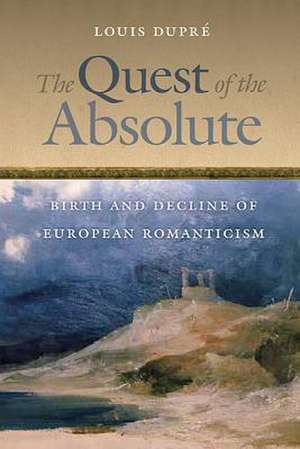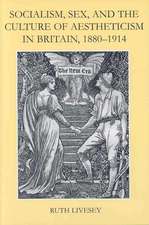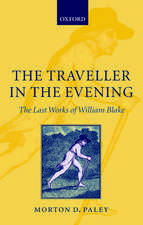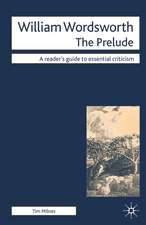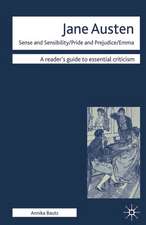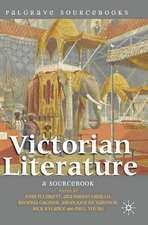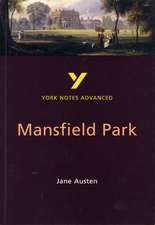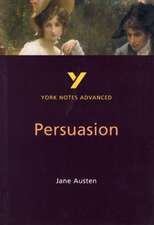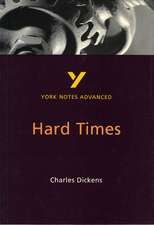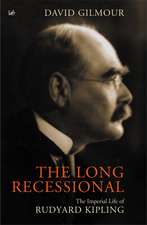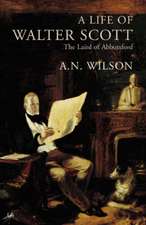The Quest of the Absolute – Birth and Decline of European Romanticism
Autor Louis Dupréen Limba Engleză Paperback – 29 sep 2013
This eagerly awaited study brings to completion Louis Dupré's planned trilogy on European culture during the modern epoch. Demonstrating remarkable erudition and sweeping breadth, The Quest of the Absolute analyzes Romanticism as a unique cultural phenomenon and a spiritual revolution. Dupré philosophically reflects on its attempts to recapture the past and transform the present in a movement that is partly a return to premodern culture and partly a violent protest against it.
Following an introduction on the historical origins of the Romantic Movement, Dupré examines the principal Romantic poets of England (Wordsworth, Coleridge, Shelley, Keats), Germany (Goethe, Schiller, Novalis, Hölderlin), and France (Lamartine, de Vigny, Hugo), all of whom, from different perspectives, pursued an absolute ideal. In the chapters of the second part, he concentrates on the critical principles of Romantic aesthetics, the Romantic image of the person as reflected in the novel, and Romantic ethical and political theories. In the chapters of the third, more speculative, part, he investigates the comprehensive syntheses of romantic thought in history, philosophy, and theology.
The Quest of the Absolute is an important work both as the culmination of Dupré's ongoing project and as a classic in its own right. The book will meet the expectations of the specialist as well as appeal to more general readers with philosophical, cultural, and religious interests.
"The Quest of the Absolute is the third volume in Louis Dupré's trilogy dealing with the origins and development of modernity and the major cultural currents defining its history. It follows Passage to Modernity (1993) and The Enlightenment and the Intellectual Foundations of Modern Culture (2004). This third volume deals with the Romantic movement. Dupré's impressive account is concerned to restore something of the full dimensionalities to Romanticism as a whole, to acknowledge something of the immense intellectual, political, and spiritual ambitions at work in it, without reneging on a reflective critical relation to it." —William Desmond, author of The Intimate Strangeness of Being: Metaphysics after Dialect
“Louis Dupré’s fascinating portrayal of the Romantic soul urges us to look afresh at this crucial ‘third wave’ of modernity. His thorough insight, astonishing erudition, mild judgment, and unparalleled perspicacity bring to life the works and ideas of many whimsical personalities. He convincingly demonstrates that their restless search for existential depth and authenticity reveals layers of truth and meaning that can function as a mirror for our times.” —Joris Geldhof, Catholic University of Leuven, Belgium
"In this extraordinarily comprehensive and penetrating study, the capstone to a great scholarly career, Louis Dupré undertakes nothing less than a grand synthesis of Romantic thought; yet the book is beautifully written and a joy to read. Discussions of English, French, and German poetry and fiction are seamlessly linked to systematic analyses of Romantic aesthetics, psychology, and ethics, as well as such other aspects of Romantic thought as the new religious and historical conceptions that emerge in the period. The Quest of the Absolute is a brilliant, indeed indispensable, book, one that demonstrates, more clearly than any previous study, why Romanticism is still relevant to the struggles that confront us in the twenty-first century." —Henry Weinfield, University of Notre Dame
Following an introduction on the historical origins of the Romantic Movement, Dupré examines the principal Romantic poets of England (Wordsworth, Coleridge, Shelley, Keats), Germany (Goethe, Schiller, Novalis, Hölderlin), and France (Lamartine, de Vigny, Hugo), all of whom, from different perspectives, pursued an absolute ideal. In the chapters of the second part, he concentrates on the critical principles of Romantic aesthetics, the Romantic image of the person as reflected in the novel, and Romantic ethical and political theories. In the chapters of the third, more speculative, part, he investigates the comprehensive syntheses of romantic thought in history, philosophy, and theology.
The Quest of the Absolute is an important work both as the culmination of Dupré's ongoing project and as a classic in its own right. The book will meet the expectations of the specialist as well as appeal to more general readers with philosophical, cultural, and religious interests.
"The Quest of the Absolute is the third volume in Louis Dupré's trilogy dealing with the origins and development of modernity and the major cultural currents defining its history. It follows Passage to Modernity (1993) and The Enlightenment and the Intellectual Foundations of Modern Culture (2004). This third volume deals with the Romantic movement. Dupré's impressive account is concerned to restore something of the full dimensionalities to Romanticism as a whole, to acknowledge something of the immense intellectual, political, and spiritual ambitions at work in it, without reneging on a reflective critical relation to it." —William Desmond, author of The Intimate Strangeness of Being: Metaphysics after Dialect
“Louis Dupré’s fascinating portrayal of the Romantic soul urges us to look afresh at this crucial ‘third wave’ of modernity. His thorough insight, astonishing erudition, mild judgment, and unparalleled perspicacity bring to life the works and ideas of many whimsical personalities. He convincingly demonstrates that their restless search for existential depth and authenticity reveals layers of truth and meaning that can function as a mirror for our times.” —Joris Geldhof, Catholic University of Leuven, Belgium
"In this extraordinarily comprehensive and penetrating study, the capstone to a great scholarly career, Louis Dupré undertakes nothing less than a grand synthesis of Romantic thought; yet the book is beautifully written and a joy to read. Discussions of English, French, and German poetry and fiction are seamlessly linked to systematic analyses of Romantic aesthetics, psychology, and ethics, as well as such other aspects of Romantic thought as the new religious and historical conceptions that emerge in the period. The Quest of the Absolute is a brilliant, indeed indispensable, book, one that demonstrates, more clearly than any previous study, why Romanticism is still relevant to the struggles that confront us in the twenty-first century." —Henry Weinfield, University of Notre Dame
Preț: 327.55 lei
Nou
Puncte Express: 491
Preț estimativ în valută:
62.67€ • 65.44$ • 51.76£
62.67€ • 65.44$ • 51.76£
Carte tipărită la comandă
Livrare economică 15-29 aprilie
Preluare comenzi: 021 569.72.76
Specificații
ISBN-13: 9780268026165
ISBN-10: 0268026165
Pagini: 398
Dimensiuni: 153 x 228 x 23 mm
Greutate: 0.64 kg
Ediția:1st Edition
Editura: MR – University of Notre Dame Press
ISBN-10: 0268026165
Pagini: 398
Dimensiuni: 153 x 228 x 23 mm
Greutate: 0.64 kg
Ediția:1st Edition
Editura: MR – University of Notre Dame Press
Recenzii
"With this volume, Dupré completes a trilogy that began with Passage to Modernity (1993) and proceeded with The Enlightenment and Intellectual Foundations of Modern Culture. . . . In spite of its subtitle, this volume is more than an intellectual history; it is a new synthesis of a diverse complement of beliefs and works. Dupré's vision affirms the coherence of romanticism by emphasizing its persistent quest for an unrealizable ideal. . . . The book is breathtaking in its erudition and thoughtful in its assertions." —Choice
"Dupré delivers a lifetime of mature erudition attentive at once to a dizzying array of specific thinkers and a general theme that coalesces them. Reminiscent of Hegel, Heidegger, and Cassirer, Dupré refreshingly affirms against contemporary reductive models of reason that historically developing culture bears permanent intelligence. . . . More specialized studies of many sources exist, notably the literary ones, but the commentary on aesthetics, ethics, and philosophy emerges as nonpareil." —Theological Studies, volume 75, issue 4
"The first and greatest merit of this particular study is its organization. It differs from the numerous other studies of Romanticism by its stratification. The first section is devoted to poetry. There follows a somewhat more hybrid section which includes psychology, ethics, fictional typologies, aesthetic and political theories, and finally, at the top of the pyramid an examination of Romantic theories of history, philosophical systems, and incursions in the romantic understanding or religion. . . . Perhaps the most important contribution of Dupré is the way in which he suggests delicately the continuing impact of Romanticism." —The Review of Metaphysics, vol. 67, issue 3, March 2014
"The Quest of the Absolute describes the Romantic spirit as an attempt to break through the limits of finitude toward an all-inclusive absolute, a search expressed in poetry, art, and philosophy, and also in political theory, and in new modes of religious symbolization. . . . Dupré brings to life the personalities of the players, both the well-known and the obscure, and situates them in the larger events of the historical period between the revolutions of 1789 and 1848." —Catholic Library World, vol. 84, no. 3
Notă biografică
Louis Dupré is T. Lawrason Riggs Professor Emeritus in the Philosophy of Religion at Yale University. He has published numerous books and articles, including Religion and the Rise of Modern Culture (University of Notre Dame Press, 2008).
